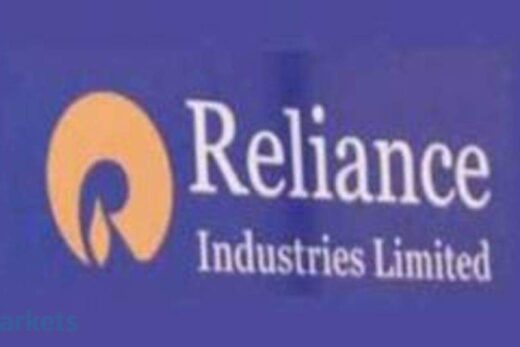Why did markets go up 7% to 8% in a matter of five-six weeks? The easy answer is liquidity but that may not be the case this time because while DIIs have bought, FIIs have sold. So what is driving the markets because now markets are not dependent on liquidity only?
The key drivers of the market over the last few weeks have been domestic investors. It is not so much the international liquidity, although international sentiment is definitely playing out and by the way India has underperformed the region over the last five-six months, although India is one of the best performing markets YTD. So yes, it is still liquidity in my view but more so, domestic liquidity. We have seen some very large mobilisations made by some of the mutual fund schemes, the kind of numbers that we have never heard before. So yes it is still the domestic investors pumping in a lot of money. It looks like there are not too many other options as of now.
Are you telling your clients to be mindful of the valuations? Or will earnings surprise us and valuations will look cheap? Valuations were looking stretched six months ago and nine months ago also. But the power of earnings has surprised us!
That is right six months, even nine months ago one could have made the same argument but the thing is, we actually like to look at valuations not just from the perspective of the PE multiples or EBITDA multiples and comparing that with history. We also put that in the context of where the risk free rate is and six months or nine months ago, that equation was looking pretty decent. Even three months ago, it was looking reasonable in my view, putting the valuation in the context of the risk free rate. But unfortunately that is not the case anymore.
It is very difficult to make a case for the markets to keep giving positive returns from here on. My advice and this is what we have been discussing with our investor base also is that absolute returns from here on are appearing more and more difficult, especially as at some point in time in the next 2-3-4 months, the taper is going to start. While the US Fed chair was very categorical in saying that they will be gradual and stuff like that, we do not necessarily have to combine the rate hikes with the starting of the taper and the two can be very different events and that was taken very positively by the markets. Since the weekend, we have seen an upward trajectory on that.
But if you take that 2-3-4 month type of a view, taper is going to begin during that timeframe and and it is difficult to argue for the risk free rates to move down further from here on. In fact, if anything, they would be moving up. So in the next three-six months, risk reward is looking unfavourable.
Monthly homes sales for August has been the best perhaps in 10 years. What is a better way to play the entire domestic housing revival market? Would it be via the realty plays or via ancillaries which includes financiers like HDFC and smaller regional plays or for that matter via tile, cement, paint companies or a mix of all?
This has been one of the themes that we have been highlighting for over the last 12 months. It has been the highest conviction idea for us and continues to be so. It is going to be a multi-year theme which is what we have been highlighting as well. The best way to play the housing recovery is through the housing developers themselves because that is the most direct and the highest beta play that one can think of on the housing market recovery.
We are going through a phase of heavy industry consolidation as well. It is not just the housing market that is reviving but the competition is reducing as well, which is great news for the existing large players. So that is the best way to play. But there is this whole chain of mortgage companies, cement, tile makers, etc, who will also be the beneficiaries. The whole theme continues to look very attractive. So while the risk reward is looking unfavourable for the broader market, this is definitely one theme which should deliver positive returns.
Where would you tactically reduce exposure or go underweight as well? We have seen underperformance in pharmaceuticals, as well as auto. In a market like this, one can increase exposure to certain pockets while a part of the market can continue to lag and underperform?
The housing theme looks very attractive where the weightages can be increased. If you look at the valuations, There are two sectors that are standing out where the valuations are still quite reasonable. One is banking and finance and the second is autos. Both have been laggards. But if one keeps in mind the kind of risk that we are entering into in terms of the market valuations, banks and autos are looking like reasonable bets to take, especially because auto has been a very big laggard and there have been some issues with rural demand. But I would be looking at playing the slightly higher end version — the premium motorcycles and car makers as a way to play. Those are the two sectors and I would also add on IT services, because obviously the valuations are completely out of whack with historical figures but this is also a sector which should do well, should there be a market correction. Also the demand trends are very robust.
So the large cap IT names, banks and autos are the reasonable part of the market where one can stay put. Tactically speaking, the valuations of some of the smallcap and midcap names are beginning to look quite stretched.
Interest rates will rise eventually. Could that hit the brakes on housing sales?
No I do not think that will cause any brakes to be applied on the housing market because if rates were the sole determinant, then the period from 2013-14 to 2020, when the mortgage rates went down from 11% down to say 6.75% or 7%, should have been one of the best times for the real estate market, but that was not the case. From here on, the key to watch out for will be the pricing action on the physical asset side. House prices are beginning to go up. We have seen about 5% to 10% price hikes over the last six months or so and that will be the single biggest driver in my view because in the last seven-eight years, there has been a huge improvement in affordability. There is a huge pent-up demand.
Many of the potential buyers have kept on postponing the purchase decisions because the pricing was soft and now that prices are going up by 5-10%, it will bring in more buyers into the housing market. So rising interest rates will be the least of the concerns in my view.



